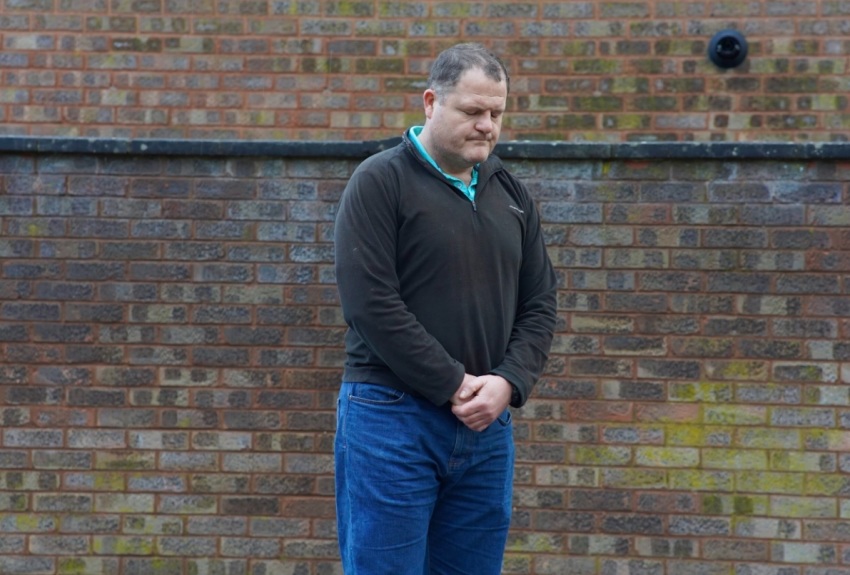‘Buffer zone’ law banning anti-abortion protests, silent prayer goes into effect in the UK

A new law establishing “buffer zones” around abortion clinics has taken effect across the United Kingdom, prohibiting protests within 150 meters (164 yards) of these facilities.
The legislation, which came into force this week, makes it illegal to engage in activities intended to influence or obstruct individuals accessing abortion services, including silent prayer.
The new law, which went into effect Thursday, bars protests — including silent prayer, handing out anti-abortion leaflets, and holding vigils — within a 150-meter radius of abortion facilities.
The Home Office specified that the ban covers “any behavior where someone is intentionally trying to — or recklessly acting in a way that might — influence a person accessing the service,” according to The Telegraph.
“The idea that any woman is made to feel unsafe or harassed for accessing health services, including abortion clinics, is sickening. This stops today,” Home Office Minister Jess Phillips stated, The Telegraph added.
Policing Minister Dame Diana Johnson said she was “confident that the safeguards we have put in place today will have a genuine impact in helping women feel safer and empowered to access the vital services they need.”
The Crown Prosecution Service issued guidance stating that silent prayer within these buffer zones “will not necessarily” constitute a criminal offense. “A person who carries out any of these activities [including silent prayer] within a safe access zone will not necessarily commit a criminal offense,” the CPS noted. Prosecutors are advised to consider the context and whether the conduct could be defined as a protest under the law.
The implementation of the buffer zone law comes after Parliament passed the Public Order Act 2023.
Violations can result in up to six months in prison and unlimited fines, according to Catholic News Agency.
Jeremiah Igunnubole, legal counsel for Alliance Defending Freedom UK, expressed concern over the legislation.
“The law is written so vaguely that peaceful, consensual conversations or even silent thoughts could be made illegal on certain streets of England,” he said, adding, “We have already seen the prosecution of individuals like Adam Smith-Connor, who only stopped to pray in his mind for a few minutes.”
Army veteran and pro-life demonstrator Smith-Connor was recently convicted for silently praying within a buffer zone. He was given a two-year conditional discharge and ordered to pay £9,000 (roughly $11,600) after being found guilty of breaching the ban around an abortion clinic.
With support from ADF UK, Smith-Connor is appealing against his conviction. “The government simply cannot be allowed to determine the content of thoughts and prayers,” he said.
Smith-Connor served in Afghanistan. “I served for 20 years in the Army reserves to protect the fundamental freedoms that this country is built upon,” he added. “It troubles me greatly to see our freedoms eroded to the extent that thought crimes are now being prosecuted in the U.K.”
The Society for the Protection of Unborn Children U.K. criticized the new law, describing its enactment as “a day of shame for England and Wales” and “a chilling moment in Britain’s history.”
Pro-life activist Isabel Vaughan-Spruce, director of March for Life U.K., called the decision to pass the law a “national disgrace.”
Prior to the CPS guidance, ADF UK launched a petition to be delivered to government officials that garnered nearly 60,000 signatures. The petition urged authorities to reconsider the legislation, asserting it was responsible for “the creation of thought crime.”
The buffer zones were previously enforced in only five councils across the U.K. The expansion of the law has led to debates over what constitutes harassment and the potential infringement on freedom of thought and expression.
“The right to hold a consensual conversation, or engage in silent prayer, constitute the most basic of human rights,” Igunnubole argued. “They are protected robustly by international legal provisions relating to freedom of thought and speech.”
Labour officials replaced draft guidance from the previous Conservative government, which had suggested that silent prayer should be permitted within the new “safe access zones.” Instead, the current guidance prohibits any attempt to influence a woman’s decision regarding abortion within the buffer zones.



























